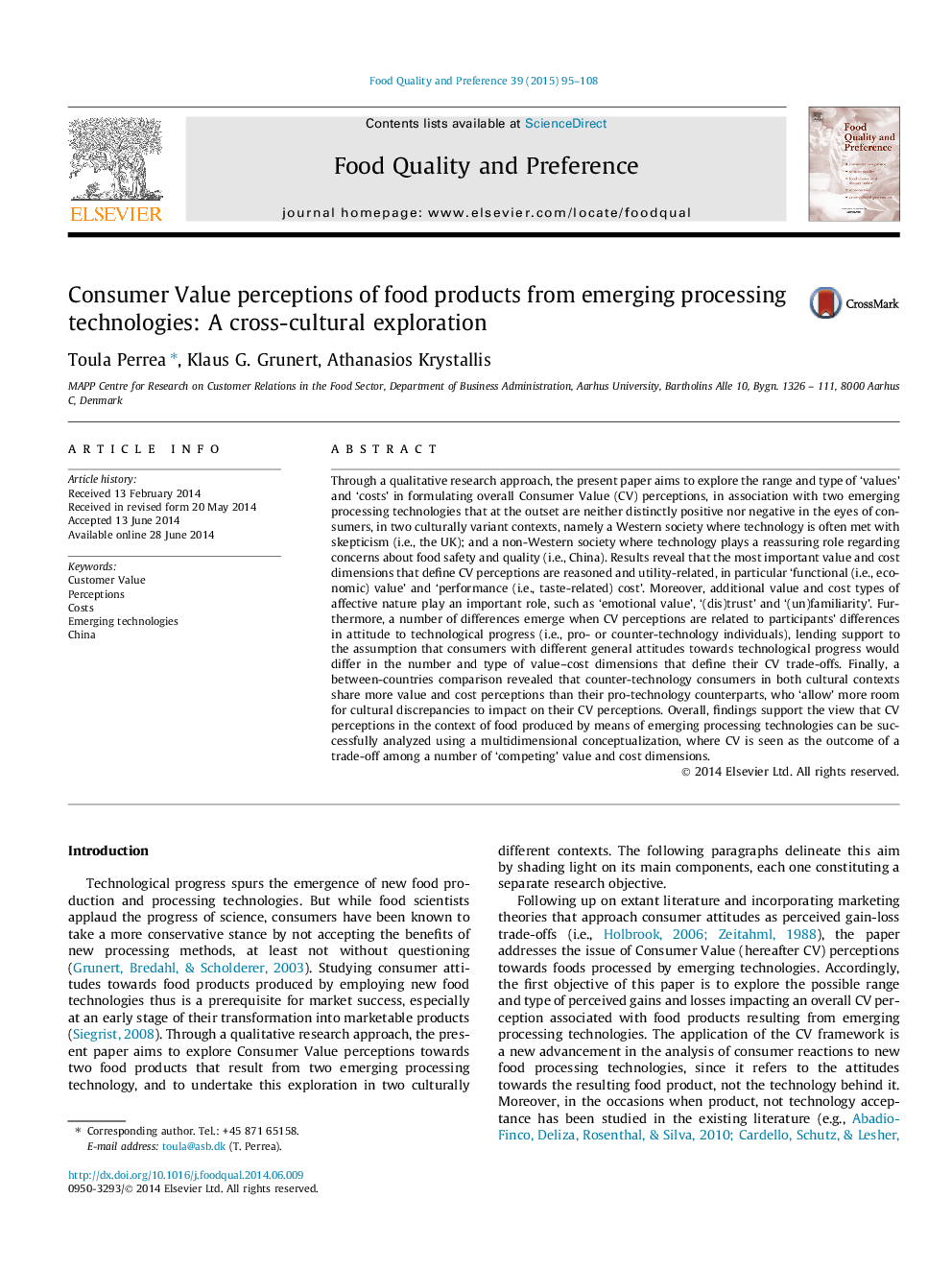| Article ID | Journal | Published Year | Pages | File Type |
|---|---|---|---|---|
| 4317098 | Food Quality and Preference | 2015 | 14 Pages |
•We explore Customer Value perceptions of new technologies’ foods in China & UK.•‘Functional value’ and ‘performance cost’ are the most important CV dimensions.•Value and cost types of affective nature also play a role in the CV perceptions.•General attitudes on technological progress define values–costs of CV trade-offs.•Counter-technology consumers share more CV perceptions than pro-technology ones.
Through a qualitative research approach, the present paper aims to explore the range and type of ‘values’ and ‘costs’ in formulating overall Consumer Value (CV) perceptions, in association with two emerging processing technologies that at the outset are neither distinctly positive nor negative in the eyes of consumers, in two culturally variant contexts, namely a Western society where technology is often met with skepticism (i.e., the UK); and a non-Western society where technology plays a reassuring role regarding concerns about food safety and quality (i.e., China). Results reveal that the most important value and cost dimensions that define CV perceptions are reasoned and utility-related, in particular ‘functional (i.e., economic) value’ and ‘performance (i.e., taste-related) cost’. Moreover, additional value and cost types of affective nature play an important role, such as ‘emotional value’, ‘(dis)trust’ and ‘(un)familiarity’. Furthermore, a number of differences emerge when CV perceptions are related to participants’ differences in attitude to technological progress (i.e., pro- or counter-technology individuals), lending support to the assumption that consumers with different general attitudes towards technological progress would differ in the number and type of value–cost dimensions that define their CV trade-offs. Finally, a between-countries comparison revealed that counter-technology consumers in both cultural contexts share more value and cost perceptions than their pro-technology counterparts, who ‘allow’ more room for cultural discrepancies to impact on their CV perceptions. Overall, findings support the view that CV perceptions in the context of food produced by means of emerging processing technologies can be successfully analyzed using a multidimensional conceptualization, where CV is seen as the outcome of a trade-off among a number of ‘competing’ value and cost dimensions.
